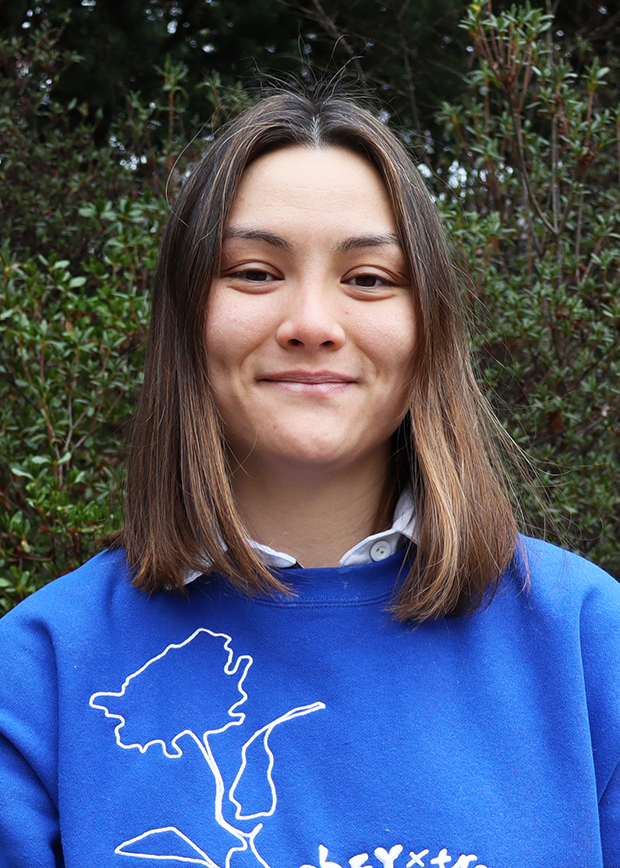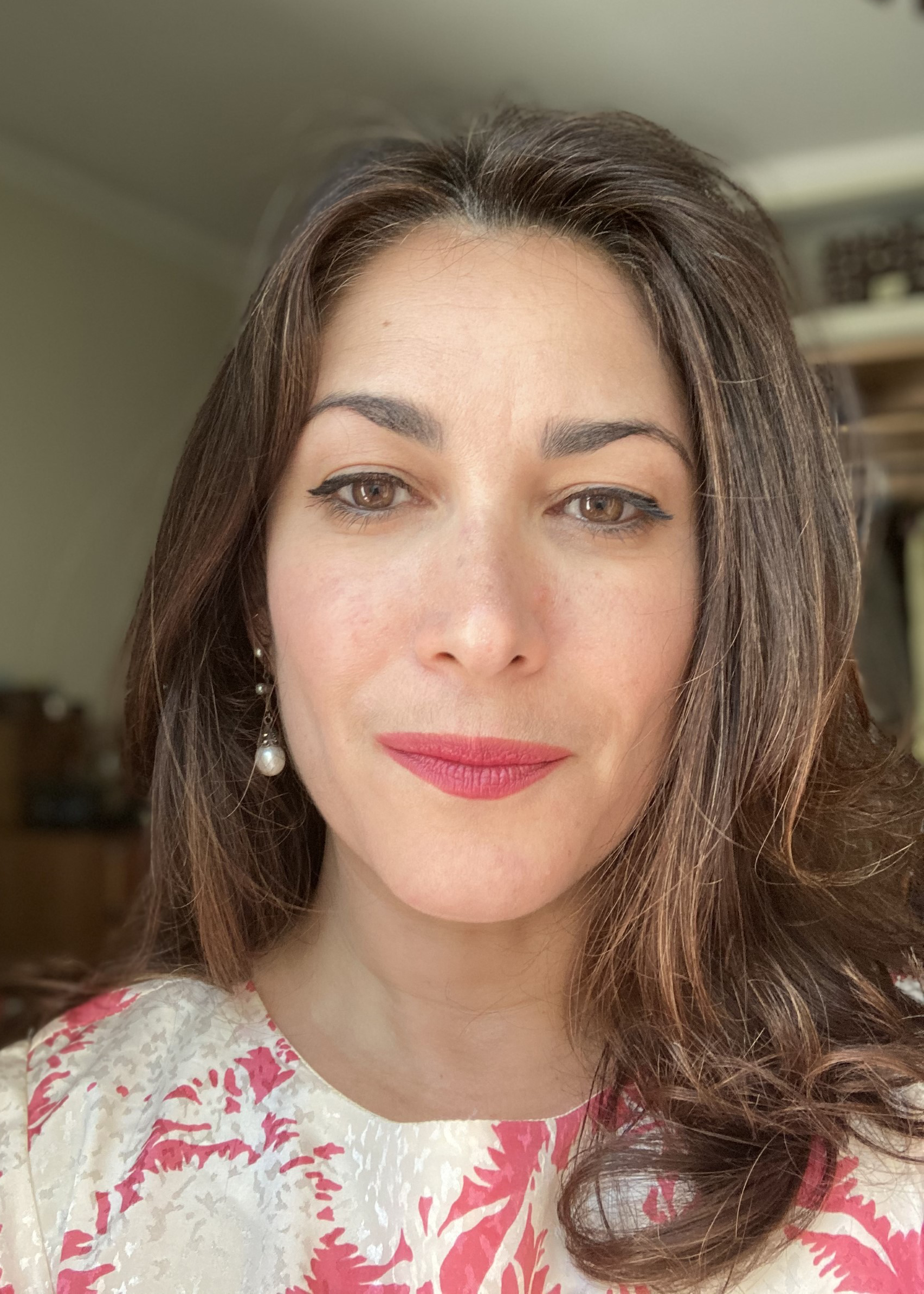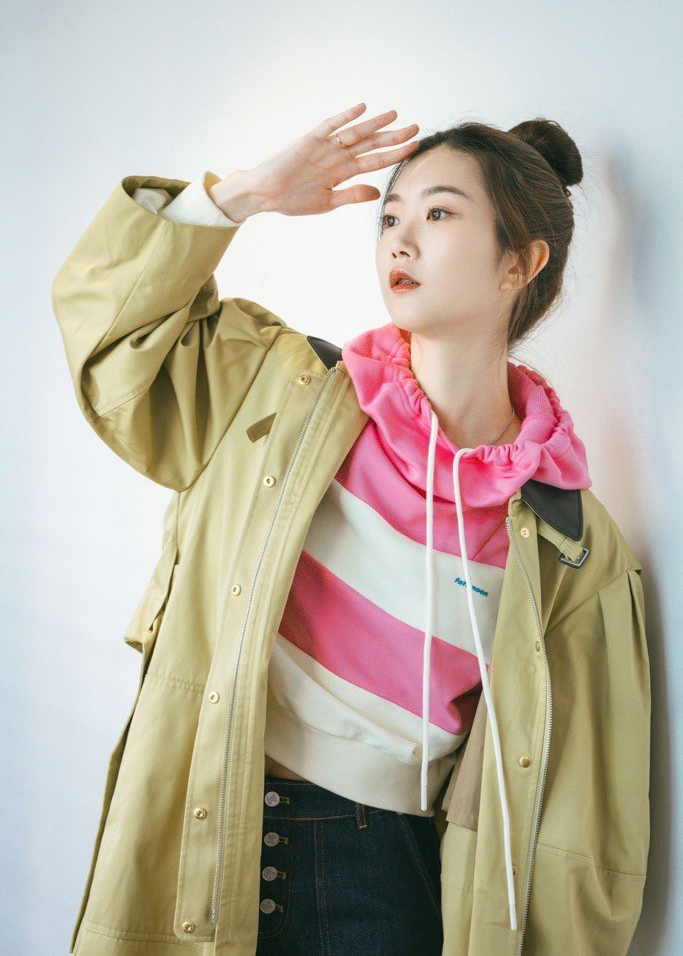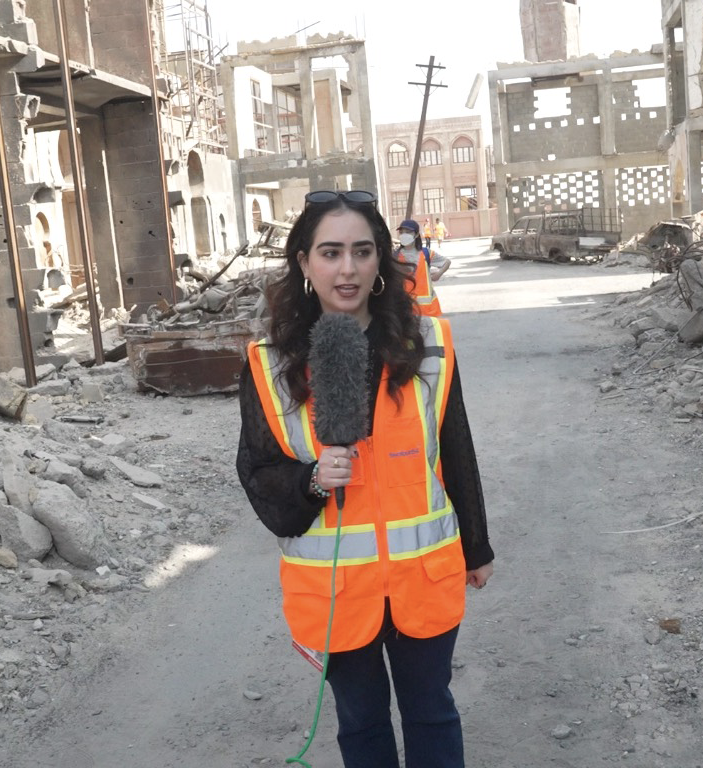Julianna Bouso Rodriguez
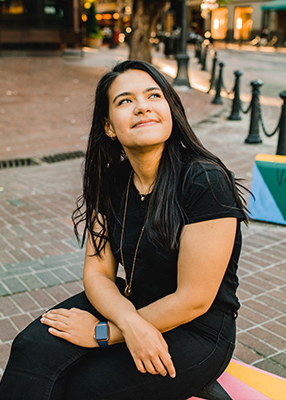
Why did you choose your program at UBC and what did you enjoy most about it?
Music and tech had both separately been my passion since I can remember, but I had not found a way to connect them when I was in Venezuela.
I visited UBC in 2012 for an IB World Student Conference, and the second I stepped on campus, I fell in love. While I was here for that conference, I reached out to the UBC School of Music to see if I could get a trial violin lesson, meet the profs, and start building connections. Later that year, it was time to apply for universities and UBC was top of the list for its dreamy campus, the city of Vancouver, and the amazing people I had met at the School of Music. I was also drawn to the small, personalized aspect of the School of Music’s curriculums.
It wasn’t until my 2nd year in the School of Music when I enrolled in MUSC119 – Intro to Music Technology – and met Dr. Bob Pritchard, where my perspective on my passion changed and I realized there was a whole world where music and tech grew together. I then decided to pursue the Applied Music Technology (AMT) minor.
What I enjoyed the most was being able to do fun research projects with so many amazing, talented and brilliant people, and being coached one-on-one by brilliant professors who sacrifice their lives to teach us the craft. I would do this program again a million times!
What were some of your most meaningful experiences at UBC?
Something that has followed me since my first Laptop Orchestra class in 2016 (which pairs traditional orchestra principles with audio-visual experiences) is the ability to take criticism and give critiques in a healthy way. The class was taught by Dr. Pritchard and Dr. Keith Hamel and they helped us understand that a mistake in our art didn’t mean we were the mistake. I have taken that principle and applied it in my career and it has helped me find worth in who I am and not in what I do.
What choices did you make at UBC that contributed to your career success / journey?
Choosing to leave the conventional music performance career and embark on a more unconventional but innovative music technology path was both the scariest and most rewarding decision I have ever made. It’s opened doors for me both professionally and personally, and taught me to continue to stay hungry and curious!
What was your first job after graduation and what other jobs did you have before your current position?
Right after graduation, I actually worked three jobs to pay my bills and help my family out. I worked for Indigo as a customer sales rep, for the Vancouver Symphony Orchestra as an events manager and stage help, and for a local show/event production company called Showmax as an audiovisual technician.
To those I added a full-time creative internship at my church as well as teaching violin whenever I could. In the internship, I used the knowledge learnt at UBC to spearhead the production of three large events and develop a software that synced up and controlled lighting, video, and audio from the same machine. I was also exposed to video editing and graphic design, so this inspired me to learn more about those and integrate them with my music technology skills.
Is your current career path as you originally intended? What challenges did you face in launching your career?
Not at all! I originally went into university thinking I would follow the traditional musician’s path – try to get into an orchestra and get a teaching job – but this has been so much more rewarding. It’s been challenging to break into an industry that is small, especially as a BIPOC woman. I’ve had to prove myself in a world where diversity is not the norm, facing challenges with coworkers demeaning my skills. I worked extra-hard to create environments where I could show what I can do. After gaining experience, I took the step to quit my full-time, stable job at the church and launched into a self-employed creative direction of audiovisual experience production and development!
What do you like about your current job and what do you find challenging? How does it relate to your degree?
My favourite part about my current job is the freedom I have to learn and be curious. Right now, I am working on expanding my visuals skills and self-teaching myself to create 3D Virtual Reality worlds to integrate them with spatial audio. I am also helping other artists have a visual voice with branding and marketing strategies.
My degree taught me to always stay curious and expand my horizons, to never settle for the norm, and to always stay true to my passion!
From your experience, what has been the value of having an Arts degree?
It’s been invaluable. Being able to learn so much about so many things in university as an Arts student has allowed me to stay hungry in an ever-changing world. Arts allows you to build your own experience and choose electives from any possible area. I took several Poli Sci and IR electives that have helped me understand the world we live in, and I would never trade that for a more “applicable” degree.
What advice would you give to students and alumni interested in breaking into your industry?
Stay curious, and always keep learning!
What advice would you give to your first-year self?
The world is bigger than you think.
Julianna Bouso Rodriguez



Why did you choose your program at UBC and what did you enjoy most about it?
Music and tech had both separately been my passion since I can remember, but I had not found a way to connect them when I was in Venezuela.
I visited UBC in 2012 for an IB World Student Conference, and the second I stepped on campus, I fell in love. While I was here for that conference, I reached out to the UBC School of Music to see if I could get a trial violin lesson, meet the profs, and start building connections. Later that year, it was time to apply for universities and UBC was top of the list for its dreamy campus, the city of Vancouver, and the amazing people I had met at the School of Music. I was also drawn to the small, personalized aspect of the School of Music’s curriculums.
It wasn’t until my 2nd year in the School of Music when I enrolled in MUSC119 – Intro to Music Technology – and met Dr. Bob Pritchard, where my perspective on my passion changed and I realized there was a whole world where music and tech grew together. I then decided to pursue the Applied Music Technology (AMT) minor.
What I enjoyed the most was being able to do fun research projects with so many amazing, talented and brilliant people, and being coached one-on-one by brilliant professors who sacrifice their lives to teach us the craft. I would do this program again a million times!
What were some of your most meaningful experiences at UBC?
Something that has followed me since my first Laptop Orchestra class in 2016 (which pairs traditional orchestra principles with audio-visual experiences) is the ability to take criticism and give critiques in a healthy way. The class was taught by Dr. Pritchard and Dr. Keith Hamel and they helped us understand that a mistake in our art didn’t mean we were the mistake. I have taken that principle and applied it in my career and it has helped me find worth in who I am and not in what I do.
What choices did you make at UBC that contributed to your career success / journey?
Choosing to leave the conventional music performance career and embark on a more unconventional but innovative music technology path was both the scariest and most rewarding decision I have ever made. It’s opened doors for me both professionally and personally, and taught me to continue to stay hungry and curious!
What was your first job after graduation and what other jobs did you have before your current position?
Right after graduation, I actually worked three jobs to pay my bills and help my family out. I worked for Indigo as a customer sales rep, for the Vancouver Symphony Orchestra as an events manager and stage help, and for a local show/event production company called Showmax as an audiovisual technician.
To those I added a full-time creative internship at my church as well as teaching violin whenever I could. In the internship, I used the knowledge learnt at UBC to spearhead the production of three large events and develop a software that synced up and controlled lighting, video, and audio from the same machine. I was also exposed to video editing and graphic design, so this inspired me to learn more about those and integrate them with my music technology skills.
Is your current career path as you originally intended? What challenges did you face in launching your career?
Not at all! I originally went into university thinking I would follow the traditional musician’s path – try to get into an orchestra and get a teaching job – but this has been so much more rewarding. It’s been challenging to break into an industry that is small, especially as a BIPOC woman. I’ve had to prove myself in a world where diversity is not the norm, facing challenges with coworkers demeaning my skills. I worked extra-hard to create environments where I could show what I can do. After gaining experience, I took the step to quit my full-time, stable job at the church and launched into a self-employed creative direction of audiovisual experience production and development!
What do you like about your current job and what do you find challenging? How does it relate to your degree?
My favourite part about my current job is the freedom I have to learn and be curious. Right now, I am working on expanding my visuals skills and self-teaching myself to create 3D Virtual Reality worlds to integrate them with spatial audio. I am also helping other artists have a visual voice with branding and marketing strategies.
My degree taught me to always stay curious and expand my horizons, to never settle for the norm, and to always stay true to my passion!
From your experience, what has been the value of having an Arts degree?
It’s been invaluable. Being able to learn so much about so many things in university as an Arts student has allowed me to stay hungry in an ever-changing world. Arts allows you to build your own experience and choose electives from any possible area. I took several Poli Sci and IR electives that have helped me understand the world we live in, and I would never trade that for a more “applicable” degree.
What advice would you give to students and alumni interested in breaking into your industry?
Stay curious, and always keep learning!
What advice would you give to your first-year self?
The world is bigger than you think.
